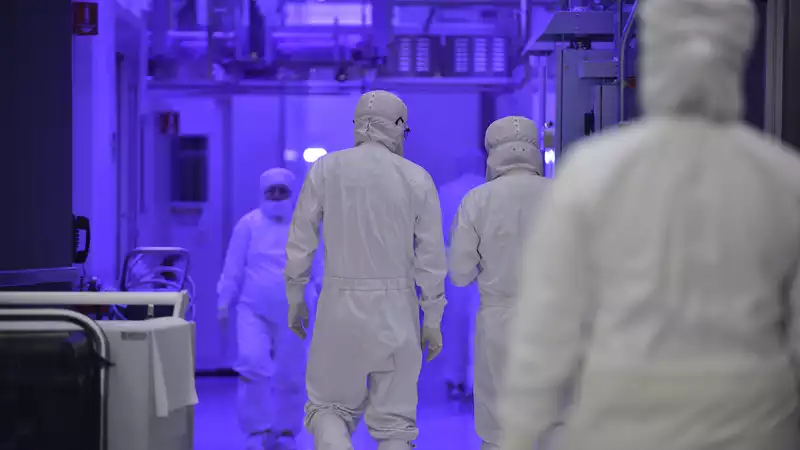Intel concluded its Q3 2020 earnings call by reporting a 10% decline in data center sales. However, Intel CEO Bob Swan's comments about the 7nm process node piqued our interest: it seems that Intel has yet to decide whether to double down on its own 7nm node or use other nodes.
"As we think about 2023 and beyond, we are looking at the products that will be needed at that point. And we are evaluating our process versus other third-party processes. And the basic criteria, as you can imagine, are very simple at the macro level. They are schedule and schedule predictability, product performance, supply chain and economics - the ability to control the supply chain as much as possible. [because] we have to decide early in 2020-2021 whether we are going to buy more 7-nanometer equipment or whether third-party foundries are going to add capacity."
This is not the first time Intel has talked about the possibility of manufacturing some of its chips in outside fabs. Earlier this year, it reported that its 7nm process node had a defect that would cause at least a six-month delay and said it was considering hiring a third-party foundry to ease the constraints caused by that delay.
That 7nm process defect has since been repaired, Swan said during the conference call. The company has since made "excellent progress" with the 7nm process, but nevertheless said it would consider other options in parallel with the 7nm process.
The company is said to have already ordered 6nm chips from TSMC. This is said to be a one-time deal, but Swan was subsequently unable to offer any firm assurances as to what the external chip supply contract would look like. Intel apparently hires third parties on a case-by-case basis for individual segments of its product line, but could not rule out an "all or nothing" agreement.
"Last question, John, is it all or nothing?" said Swan in response to analyst John Pitzer's question about the composition of external foundry products. No, it's server or client. We look at both big cores and small cores. We look at several segments of the stack within the product line. In other words, we are looking at a variety of different parameters in terms of the configuration of the business." [And as I said in my prepared remarks, it's probably not all or nothing, but probably a mix in terms of the best path to ensure a predictable leadership product cadence for 2023 and 2024 as well as 2020, 2021 and 2022. And I think we will learn as much as we have in the next 90 days, and will be in a much better position to make decisions in the January timeframe.
Intel's rivals have long abandoned in-house manufacturing in favor of outside foundries; AMD once ran its own manufacturing division, which was later spun off into GlobalFoundries.
Nvidia has never operated its own factories, choosing instead TSMC and Samsung to produce its existing line of graphics cards.
Intel, however, may not be as keen on outsourcing as other companies. The company has long been a world leader in chip manufacturing, with factories in the U.S., Ireland, Israel, and China, and is arguably one of the top companies in this field. It may also want to maintain its manufacturing capacity for another reason: in a recent newsroom posting, the company touted its position as one of the last semiconductor companies to manufacture chips in the United States.
In the words of Jeff Littner (Intel Chief General Affairs Officer), "80% of the world's semiconductor manufacturing capacity is now in Asia." Intel and the entire U.S. semiconductor industry face fierce competition in the global semiconductor market. The United States risks falling behind in an industry it once dominated and on which its economy and national security depended."
In completely unrelated news, Intel recently sold its SSD business to South Korea's SK Hynix.
.

Comments